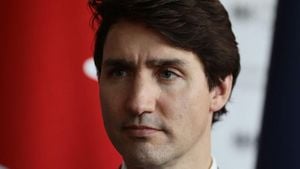Energy companies are gearing up for dramatic changes as the UK's energy regulator, Ofgem, proposes the implementation of zero standing charge tariffs. This shift is not merely cosmetic; it aims to tackle the spiraling energy debts affecting households across Britain, particularly amid the stubborn cost-of-living crisis.
Standing charges, the daily fees consumers pay to cover the costs of energy infrastructure and support services, have long been criticized for disproportionately impacting those who use less energy. With fixed costs remaining the same regardless of energy consumption, lower-use households often find themselves bearing the brunt of these charges—even if their overall energy costs are minimal.
Under Ofgem's proposals, which are slated to take effect next winter, suppliers will be required to offer tariffs with no standing charges as well as traditional tariffs. Martin Lewis, founder of MoneySavingExpert.com, has labeled the standing charges as akin to a "poll tax," stating they disincentivize energy conservation and are especially burdensome during months of low energy use. He noted, "Standing charges are by far the biggest single subject of complaint I get from the public about energy bills," emphasizing the need for reform.
The regulation change aims to allow more flexibility for consumers, letting them choose between tariffs where the standing charge is incorporated within the unit costs and tariffs offering clear separations. While this innovation is expected to ease financial pressures, there are caveats. For example, those who use more energy due to health conditions, such as the elderly relying on gas heating, may end up with higher costs under the new system.
Ofgem is also rolling out additional assessments concerning customer support, with proposals for suppliers to extend more help to those grappling with energy debt. An assessment of customers’ ability to pay could help tailor repayment plans, making them more manageable. With household energy debts reaching approximately £3.82 billion—a staggering 91% rise over the last two years—adequate measures are imperative to support struggling families.
News of the initiative has sparked mixed reactions among activists and financial experts alike. While some laud the introduction of zero standing charge options as progressive, consumer advocacy groups like Citizens Advice Scotland caution against merely shifting the financial burden rather than alleviating it. Derek Mitchell, CEO of Citizens Advice Scotland, stated, "This is likely to make billing more complicated and harder for people to know what choices to make," urging for more comprehensive reforms. He posits the real issue lies with the energy market structure itself, not the consumers who are often limited by affordability.
Overall, the proposed reforms reflect Ofgem's attempt to create more equitable pricing practices and encourage energy firms to reevaluate their fee structures. Standing charges have seen escalations of around 43% since 2019, culminating in average annual costs nearing £338 for dual fuel households from January 2025. Transitioning to zero standing charge models could deliver significant savings for many, but it requires careful navigation and consumer awareness.
Factors contributing to rising standing charges include the need for continual investment in aging energy infrastructure, which regulatory changes and environmental mandates have exacerbated. Lewis and other financial experts advocate not just for the zero standing charge tariffs, but for broader governmental action to reduce poverty-related bills overall.
Energy analysts also suggest opening pathways for vulnerable groups to access these no-standing-charge tariffs by default. This approach mirrors existing protections for those on Priority Services Registers, much needed for those who may not navigate the market changes effectively due to limited financial literacy or health constraints.
Upcoming consultations on the proposals will close at the end of February, and industry feedback will be pivotal for shaping the final regulations. With eyes on the winter of 2025, stakeholders hope these reforms will bring not just short-term relief, but lasting change for energy consumers struggling under the weight of high bills.
Through all this, the overarching message remains clear: households need tangible tools to manage energy costs effectively, especially as global energy prices remain volatile. The government's willingness to explore these changes reveals both awareness of the pressures faced by consumers and the potential for systemic transformation within the UK energy market.



